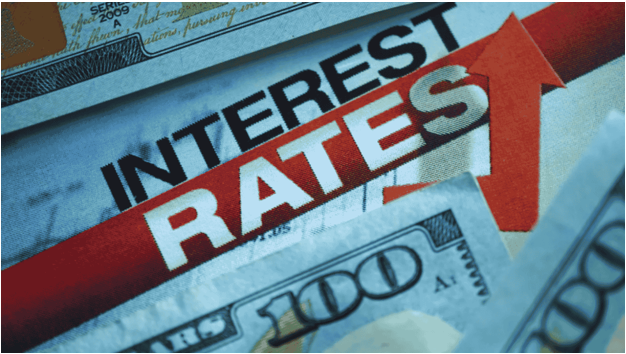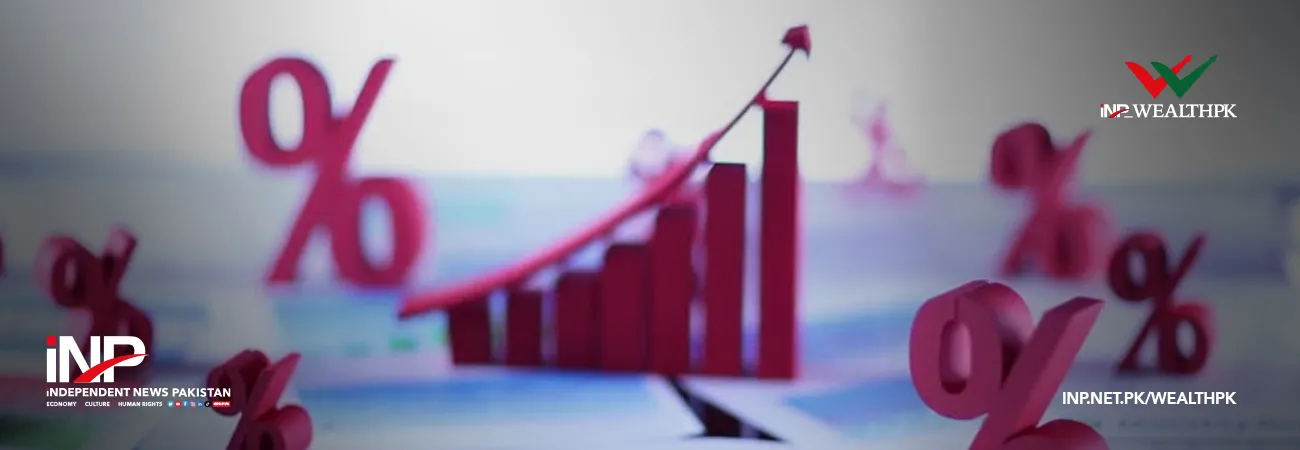INP-WealthPk
Muhammad Saleem
Pakistani taxpayers are currently bearing one of the heaviest financial burdens in the region, as the State Bank of Pakistan (SBP) continues to maintain interest rates at 11 percent, despite repeated appeals from the business community for relief.

Haji Salamat Ali, former central chairman of the Pakistan Hosiery Manufacturers and Exporters Association (PHMEA), told Wealth Pakistan that the continuation of such high interest rates has left ordinary citizens paying the ultimate price for the government’s fiscal and monetary policies.
He said that while the authorities may believe that keeping the interest rate elevated brings short-term advantages for debt management and international lenders, the long-term consequences are severe. “It is the taxpayers who are shouldering this heavy burden. By managing the borrowing more wisely and by introducing practical tax reforms, the government can improve the situation. Otherwise, ordinary citizens will continue to pay an unfair share of the cost,” he added.
Ali emphasized that the business community has consistently raised concerns that high borrowing costs are creating significant challenges for Pakistani exporters. “Entrepreneurs are being left in an outlandish situation when competing with international rivals who operate under far more favorable lending conditions,” he remarked. However, he lamented that these concerns have been consistently ignored by decision-makers, and no reduction has been made in the interest rate since May 2025.
He warned that without providing a level playing field to the business community, Pakistan cannot expect to enhance exports or create large-scale employment opportunities. “Sooner or later, the government will be forced to take corrective measures if it wants to break the ongoing economic stagnation,” he stressed.
According to Ali, Pakistan’s current economic realities demand an interest rate of around six to seven percent to stimulate economic activity and growth. However, the SBP’s insistence on keeping it at 11 percent is “adding fuel to the fire.”
He further explained that a single-digit interest rate would not only ease the export sector’s chronic shortage of capital and mitigate rising production costs but also reduce the government’s debt servicing burden by nearly Rs3,500 billion. “Besides, lowering the rate would improve citizens’ purchasing power, boost industrial production, and create thousands of new jobs,” he added.
Criticizing the contradictory stance of the authorities, Ali said: “On one hand, the government is making efforts to attract local and foreign investment. On the other, its own monetary policies are working against that very objective. This disparity will not only undermine the confidence of the business community but also discourage fresh investment.”
He pointed out that according to the government’s own figures, inflation has already come down to between three and four percent. Despite this, a wide gap remains between the actual inflation rate and the extremely high cost of borrowing. At the same time, entrepreneurs are already battling higher electricity and gas tariffs and other escalating input costs, he added.
Ali suggested that if the authorities genuinely want to strengthen the national economy, they must recognize that expensive borrowing is pushing up production costs, discouraging exports, and paving the way for more unemployment. He also highlighted that Pakistan has a unique opportunity to expand its exports to the United States, where tariff barriers on Indian and other regional competitors are higher than those faced by Pakistani exporters. “But in order to seize this golden opportunity, textile exporters must be provided electricity and gas at competitive regional rates, interest rates must be slashed, and sales tax refunds should be cleared within the stipulated 72 hours,” he advised.
Khalid Usman, Senior Vice President of the Lahore Chamber of Commerce and Industry (LCCI), also expressed his dissatisfaction with the current monetary stance. He told Wealth Pakistan that the government itself claims inflation has fallen to five to six percent. “But if that is truly the case, then why has the SBP kept interest rates at 11 percent? This contradiction suggests that the government is misleading the people by creating a false impression of economic progress,” he said.
Usman argued that these high interest rates are not serving the people at all. Instead, they are discouraging investment, slowing business activity, and creating more hardship for the public. “Businesses are struggling to survive, citizens are under pressure, and poor governance is only adding to the crisis,” he maintained.
He pointed out that while political debates about creating new provinces are gaining momentum, the country already lacks sufficient resources to manage existing provinces effectively. “Delegating powers is meaningless without accumulating resources. And the only way to generate those resources is to allow the business community to operate in a conducive environment. With interest rates so high, it is nearly impossible for anyone to do business with ease,” he added.
According to Usman, businesses may still be operating, but profit margins are shrinking drastically, making it difficult for firms to cover expenses. He urged the government to slash interest rates without further delay so that new investment opportunities could open and more jobs could be created.
“Unless immediate measures are taken, Pakistan risks missing out on both domestic and international investment opportunities. Lowering interest rates is not just a business demand—it is a national necessity,” he concluded.
Credit: INP-WealthPk









